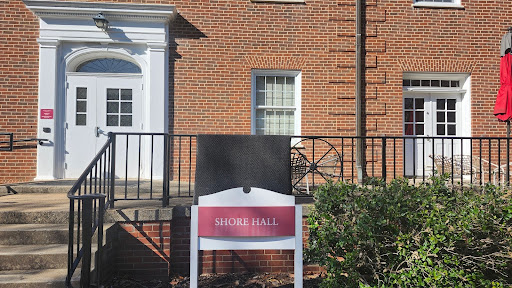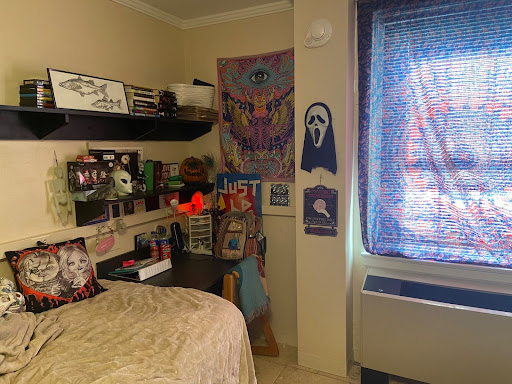In her quest for justice, sexual assault survivor Emma Sulkowicz has discovered that a mattress speaks louder than words.
Sexual assault is common on United States campuses, with a recent survey of undergraduate women published in the Journal of American College Health showing that 19 percent experienced sexual assault while in college.
Sulkowicz, a senior visual arts major at Columbia University, reacted in a unique way by combining performance art and public protest.
“I think she’s being brave,” said Mark Dixon, assistant professor of art. “We’ve had an issue in our culture that says the survivors should be somehow ashamed when it’s the perpetrators who should be ashamed. The survivors are encouraged to protect their image by being anonymous and they are starting to defy that rule, and it’s bringing sexual assault into the public eye in a powerful way — whether it’s called art or not.”
Her piece, which is also her senior thesis project, is titled “Carry That Weight.” Sulkowicz intends to drag her 50-pound mattress around campus until her alleged rapist, Jean-Paul Nungesser, is expelled.
Sulkowicz reported the rape to the police as well as Columbia’s justice system, but Columbia has not taken disciplinary action against Nungesser despite similar assault claims from two other female students.
“There’s a reason survivors choose not to go to the police, and that’s because they’re treated as the criminals,” said Sulkowicz to The Columbia Spectator. “The rapists are innocent until proven guilty, but survivors are guilty until proven innocent, at least in the eyes of the police.”
According to Robert Hornsby, associate vice president for media relations, Columbia has taken steps to address complaints of Title IX violations filed in federal court by 23 students targeting the university’s policies on sexual assault.
“As the University has made clear in many different ways during the past month, major steps have been taken to enhance the gender-based misconduct policy and resources available to all Columbia University students,” said Hornsby.
Despite these changes, Columbia students, and students around the nation, have begun to organize demonstrations in support of Sulkowicz and sexual assault survivors in general. These demonstrations, billed as “Help Carry the Weight Together,” are a recent development in response to Sulkowicz’s project, and they seem to be picking up momentum.
Whether Guilford will hold similar demonstrations remains to be seen.
“My reaction to Sulkowicz’s piece was that it was a very powerful community organizing tool,” said Kristie Wyatt, head of the consent campaign at Guilford, wellness education coordination and community director for Shore Hall, English Hall and Pope House. “Whether Guilford demonstrates support through our own programming will depend on our consent committee and other student involvement. I am, however, looking into possible collaboration with a local school who hopes to bring Emma Sulkowicz to Greensboro.”
Just like Columbia, Guilford has come under fire for its sexual assault policy in recent years and is currently under investigation by the United States Department of Education’s Office for Civil Rights for possible violations of Title IX.
“This a difficult but important time for Guilford, especially as one of the more activist colleges on that (DOE) list,” said Aaron Fetrow, former dean of students at Guilford. “Sexual assault is an important issue that has been ignored or intentionally overlooked at schools all over the country.”

















